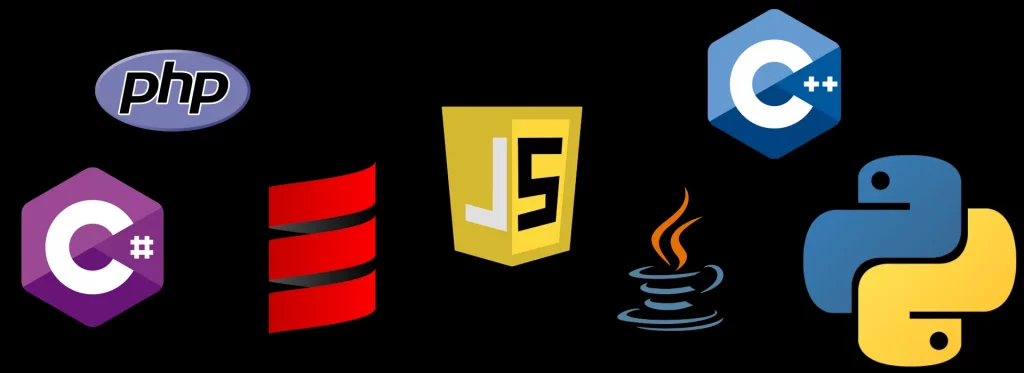List of programming languages used for Web Development
By Dillon Smart · · · 0 Comments

There are a wide variety of programming languages that can be used for web development. Which one you choose depends on your preferences and needs. Some languages are better suited for certain tasks than others. In this post, we’ll take a look at some of the most popular languages used for web development.
What is Web Development?
Web development is the process of creating, designing, and maintaining websites. It can be divided into three parts: front-end development, back-end development, and full stack development. Each part has its own set of responsibilities and skills.
Programming Languages used for Web Development
There are many languages, frameworks, and libraries used in Web Development. Most websites use a mixture of technologies and languages to achieve the desired functionality of the site.
An example is this site, it’s only small and doesn’t serve much in terms of user functionality, but it’s built using:
- PHP
- JavaScript
- HTML
- CSS (SCSS)
Here is a list of programming languages used for Web Development in 2022.
JavaScript
JavaScript is one of the core technologies of the Web, alongside HTML and CSS.
JavaScript is the most used programming language for Web Development and is used by 97% of all websites. The key to its popularity is that JavaScript is a client-side programming language, meaning the code run on the user’s computer rather than on the server.
PHP
PHP is an open-source, general-purpose, and server-side scripting language widely used in web development. PHP is used to manage databases, dynamic content, session tracking, and much more.
The most popular use for PHP is web development, specifically blogs and websites, including e-commerce websites.
PHP is used by around 77.6% of all websites, making it the most popular server-side language used on the web.
Some notable websites which use PHP are:
- Wikipedia
- WordPress
- Slack
- Etsy
- Yahoo
C#
C# is a general-purpose, multi-paradigm programming language created by Microsoft. For web development, ASP.NET is used for backend web development and C# & VB.NET are used for frontend development.
ASP.NET is used by around 7.7% of the web, making it the second most popular server-side language used in web development.
Some of the biggest sites that use ASP.NET are:
- Microsoft
- GoDaddy
- Ancestry
- Stack Overflow
Java
Java is a high-level, class-based, object-oriented programming language designed to run anywhere. “Build once, run anywhere”.
Java is typically used in more corporate settings, and powers around 4.2% of the web. Java is the primary language behind Android applications.
Some of the biggest sites that use Java are:
- Amazon
- Ebay
Scala
Scala is a high-level, object-oriented and functional programming language, making it great for web development.
Scala eliminates boilerplate code, requiring less code than similar programs written in Java.
Scala powers around 2.7% of the web, with some of the most notable websites using Scala being:
- Netflix
- Tumblr
- Airbnb
Ruby
Ruby is an interpreted, high-level, general-purpose language. Growth for Ruby was slow in its early years, but with the release of the Ruby On Rails framework the language quickly became the hot new language to learn in the mid-2000s.
Many online companies that started in the mid-2000s found themselves being built on using Ruby. Here is a list of sites that were built using Ruby and Ruby On Rails:
- GitHub
- Airbnb
- Kickstarter
- Hulu
Python
Python is a high-level, interpreted, general-purpose programming language and is a great language for building websites, software, automating tasks, and analyzing data.
Python is used by many big-name sites, some of these include:
- Spotify
- Netflix
- Uber
- Dropbox
C++
Considered one of the hardest programming languages to learn, C++ is used in many types of software development such as game development and developing operating systems.
Some big sites that use C++ are:
- YouTube
- Yahoo
- Amazon
Conclusion
There are many languages to choose from when considering Web Development. some are more tailored for building websites and applications, while others offer more security, scalability, and low-level access to a computer’s hardware.
Credits: https://w3techs.com/
0 Comment